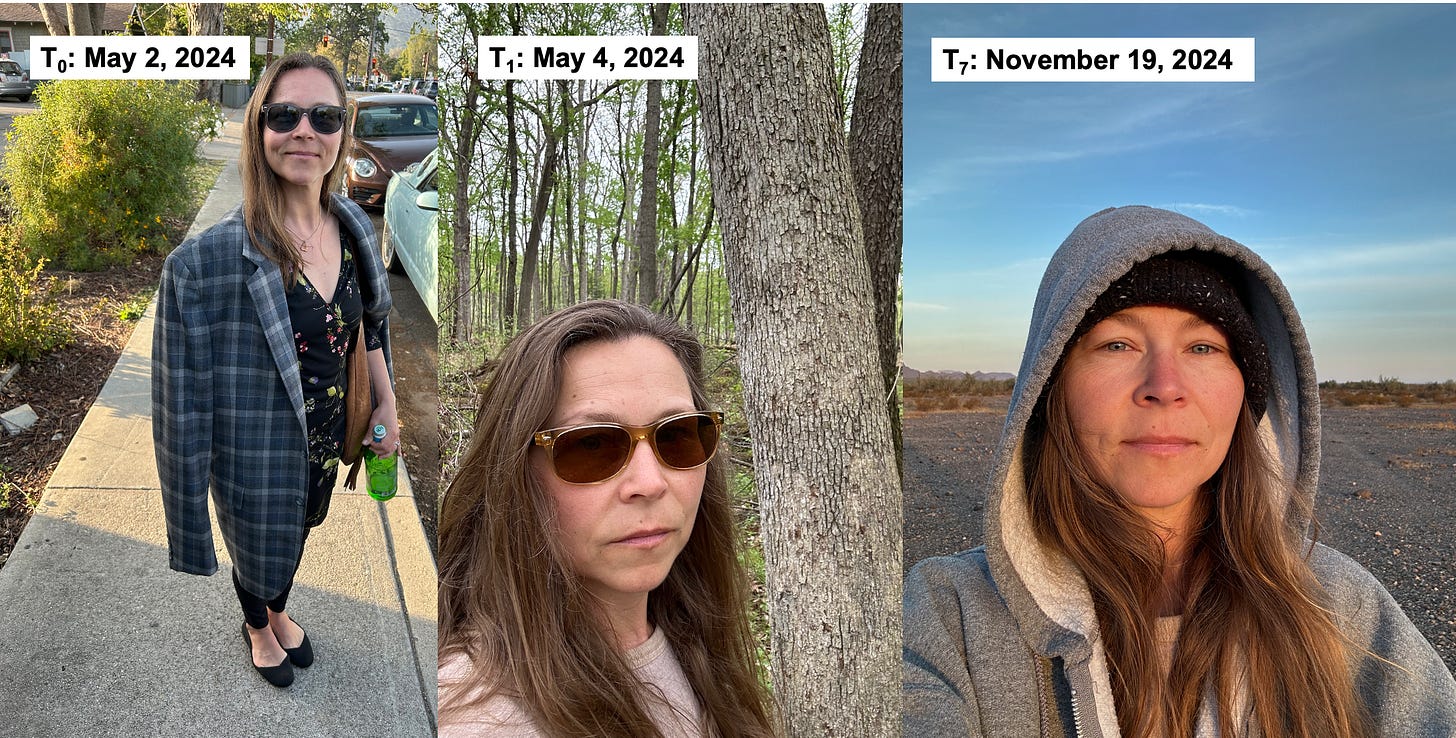There are moments when a single, unexpected event changes one’s trajectory irreversibly. May 2024 brought such an event.
There have been countless lessons, some of which I intend to share on Hopecology as the aftermath of this event continues to unfold—lessons about cultivating hope in the midst of crisis; the American healthcare system; the way elders are treated; and much more.
I’m learning that hope doesn’t derive from things going well; it derives from things going Absolutely to Shit. This is because hope is an action, not a feeling—and when things are fine, well…what is there to take action toward?
Because the aftermath of the crisis is continually unfolding, and because it involves some sensitive subjects, I’m going to keep it closer to heart. As I mentioned in the Hopecology explainer, there will be times that, to put some compassionate boundaries around more personal stories, certain posts will be for paying subscribers only.
If you’re already a paying subscriber, your generous commitment to Hopecology will be paying new dividends. If you’re not, but would like to follow along, I hope you’ll consider it. If a paid subscription isn’t possible for you right now, the referral program is one way to earn one. I also offer gift subscriptions to anyone who recommends Hopecology on their own Substack. Finally, if none of these work for you, send me an email and tell me a little about yourself: hopecology@gmail.com. I don’t want the paywall to be an insurmountable barrier for anyone who wants to read Hopecology. Let’s chat.
For those of you not joining us past the paywall, here is the TLDR:
One of the people I love most in the world had a stroke.
Circumstance led to my managing all of their business and medical affairs.
Overnight, I went from a childless scientist to a caregiver for a hemiplegic octogenarian.
This may sound like a burden to some. That’s not a word I use to describe this experience; besides, most often, it is an exciting, invigorating, heartbreaking, heartwarming, stunning, surprising, ever-evolving, hope-cultivating undertaking.
Though I’ve been at this for nearly a year, the energy required to keep going somehow regenerates itself—if I consciously manage to get enough rest, which isn’t easy.
I didn’t at first. I crashed and burned—hard—a few times last summer. In July I almost lost everything (and I mean everything). But I’m learning what I need to do in order to keep going, and that means taking care of myself in new ways.
This is what crisis does: it teaches us resilience, and that we have a lot more in us than we think we do.
Where to start?
With multifaceted, megalithic stories, it’s often difficult to know where to begin.
In 2017, beneath the pale mid-afternoon light of a Pacific Northwest December, I took respite from the Thomas Fire as it continued to rage through my community. As soon as the plane pierced the thick Seattle cloud cover, and I caught a ferry to the Olympic Peninsula, my friend Kirie and I began doing what we know to do in crisis: we walked.
As we strolled along the Dabob Bay mud flats, I breathed in the fresh air deeply, the first untainted by ash and smoke for weeks.
After we had walked side by side in silence for the appropriate amount of time, she asked tenderly, “So what happened?”
“I don’t even know where to start,” I said.
“Start at the beginning.”1
Her answer was obvious, yet revelatory. It is this kind of logic that I must borrow from others when the exhaustion of crisis sets in.
And so, here, I will take Kirie’s suggestion. Let’s start at the beginning of the story of my journey with L.O.—my Loved One.
T0 - T1: How it began
On the evening of May 2, 2024, my husband and I went to dinner to celebrate our fourteenth wedding anniversary. We sat outside under the twinkling string lights, picking at half a roasted chicken, talking over our plans for the rest of the year: what we hoped for, what we would like to do. Our future seemed nearly as rosy as the sunset that warmed the backdrop of the Topa Topa mountains in the distance.
On our walk back to the truck, I was admiring the effects of golden hour, so my husband snapped a photo of me. His jacket, thrown over my shoulders because a chill was settling into the valley, seems to dwarf me as I stand there, unfinished bottle of sparkling water in hand, having not a clue that this would be the last day of that version of my life.
Like the baseline photos taken before a treatment begins in an ecological experiment, May 2 represents Time Zero.

T1
I thought my dog died. In the early morning hours, my husband came into the room and said, gently, “I’m sorry to have to wake you with this, but…”




